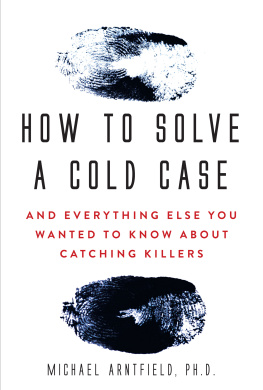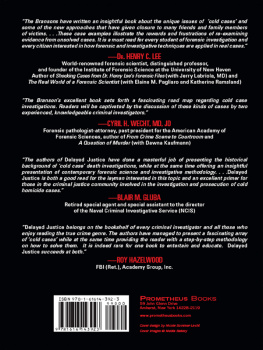


Additional material copyright 2019 by Skyhorse Publishing, Inc.
No claim is made to material contained in this work that is derived from government documents. Nevertheless, Skyhorse Publishing claims copyright in all additional content, including, but not limited to, compilation copyright and the copyright in and to any additional material, elements, design, images, or layout of whatever kind included herein.
All inquiries should be addressed to Skyhorse Publishing, 307 West 36th Street, 11th Floor, New York, NY 10018.
Skyhorse Publishing books may be purchased in bulk at special discounts for sales promotion, corporate gifts, fund-raising, or educational purposes. Special editions can also be created to specifications. For details, contact the Special Sales Department, Skyhorse Publishing, 307 West 36th Street, 11th Floor, New York, NY 10018 or .
Skyhorse and Skyhorse Publishing are registered trademarks of Skyhorse Publishing, Inc., a Delaware corporation.
Visit our website at www.skyhorsepublishing.com.
10 9 8 7 6 5 4 3 2 1
Library of Congress Cataloging-in-Publication Data is available on file.
Cover design by Brian Peterson
Print ISBN: 978-1-5107-5052-4
Ebook ISBN: 978-1-5107-5057-9
Printed in China
Table of Contents
Cyberstalking
Woman Sentenced for Harassing Victim on Social Media
The messages were relentless. A California woman couldnt escape the barrage of malicious texts, phone calls, and social media posts originating from a mysterious individual with whom she had no previous connection.
The harassment didnt stop until the FBI intervened and uncovered a trail of threats and extortion that led to a Miami college student who is now behind bars for cyberstalking.
An unwanted relationship was being pushed on a victim who ultimately felt terrorized by an obsessed individual she didnt even know, said Assistant U.S. Attorney Jodi Anton, who supported the FBI during the investigation. The constant intimidation was destroying her life, to the point where she could barely function at work and considered suicide.
The perpetrator, Kassandra Cruz, was completing her criminal justice degree at Florida International University and spent countless hours behind the computer between her studies. In June 2015, she became fixated on a woman she found on a pornography website and tracked down the actress through her social media accounts.
The victim was an 18-year-old high school student at the time looking for ways to get ahead in life. She made a bad decision trying out pornography, said Special Agent George Nau, who investigated the case out of the FBIs Miami Field Office. It was something she kept hidden from her family and employers. She didnt realize her past would come back to haunt her 15 years later.
Cruz gained access to two of the victims social media feeds by creating a fake persona of an attractive male U.S. Marine named Giovanni and sending friend requests. The former adult film actress accepted, and Giovanni began liking and commenting on almost every picture she shared. But the victims suspicions began to mount in September 2015, when Giovanni started to follow and like her friends posts as well.

Even while Cruz was being driven to jail, she still wanted to talk to the victim. She was blinded by her obsession and oblivious to the impact of her crime.
By the end of the summer, Cruzs fake profiles were blocked, which angered her. She resorted to harassment and often violent threats, which were aimed not only at the victim but also her friends and family. Included in Cruzs messages were a plot to expose the victims hidden past making adult films as well as demands to be paid $100,000 in return for leaving the victim alone.
Cruzs flurry of e-mails, letters, and social media messages were taking their toll on the victims personal life and professional career. From the beginning of 2016 until late April, the victim received more than 900 phone calls and text messages on her cell phone alone. Approximately the same amount of unwanted calls were made to the victims home and work phones before the FBI ended the stalking.
Cruz had many fake social media accounts, so it was difficult at first to track all of the threats to the source, said Nau. She would create a new profile as soon as she was blocked. But ultimately, the e-mails, phone calls, and letters led us to her.
A turning point in the investigation took place in May 2016, when the FBI lured Cruz into a video chat with the victim to discuss paying the $100,000 extortion demand. While the conversation further solidified that Cruz was behind the threats, it was the in-person meeting arranged during the chat that allowed agents to finally make an arrest.
In August 2016, Cruz was sentenced to 22 months in prison after having been found guilty of cyberstalking.
Even while Cruz was being driven to jail, she still wanted to talk to the victim, said Nau. She was blinded by her obsession and oblivious to the impact of her crime.
Federal Funds Stolen from Non-Profit Health Care Clinics
Investigation Leads to Former CEO

Jonathan Dunning used clinic money to buy this now-shuttered facility, titled the building in his companys name, and charged about $20,000 a month in rent .
The staff of two non-profit health care clinics diligently worked to offer critical medical care and services to the most vulnerable residentsyoung and oldof the Birmingham, Alabama, region. And to carry out its operations, the clinics received funds from a federal program specifically designed to offer a community safety net for the uninsured, the poor, the homeless, migrant and seasonal farm workers, and public housing residents.
But enter Jonathan Dunning, former CEO of both non-profits whowhile working for the clinics and even after he left orchestrated and carried out a seven-year criminal scheme to defraud the clinics and the federal government out of more than $16 million. The scheme severely affected the quality of care that clinic patients received.
After a joint federal investigation into his activities, Dunning was eventually convicted on nearly 100 counts of fraud and money laundering-related charges and was recently sentenced to a federal prison term of 18 years. He was also ordered to pay $13.5 million in restitution to the entities he defrauded, in addition to an order of forfeiture that divested him of any interest in real property he obtained through his criminal scheme.
The FBI portion of the investigation began in 2011 when the Birmingham FBI Field Office received an allegation that former CEO Dunning was taking money from the two clinics through seemingly illegal contracts with the group of for-profit businesses he had created. Our investigator soon learned that the Department of Health and Human Services Office of the Inspector General (HHS-OIG) had recently opened up its own investigation into Dunning after receiving similar allegations, so both agencies joined forces. An agent from the Internal Revenue Service-Criminal Investigation Division (IRS-CID) rounded out the team.
Next page
















